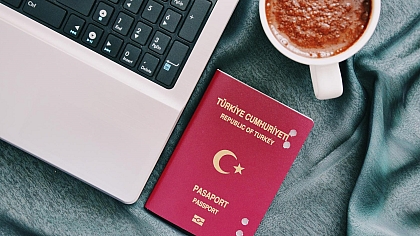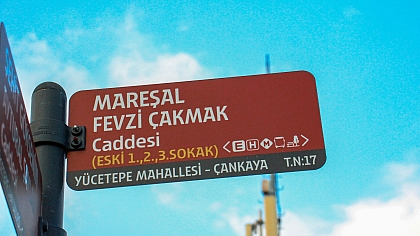
14 Turkish Real Estate Investment Mistakes to Avoid for a Successful Purchase
Investing in Turkish real estate has become an attractive option for global investors due to Türkiye's unique geographic location, favourable climate, and growing economy. However, the process can be complex, and without proper research and due diligence, investors may encounter pitfalls that lead to financial losses.
To ensure a successful investment, here are the 14 most common mistakes foreign property buyers make in Turkey and essential tips to avoid them.
1. Not Verifying the Property Title Deed
One of the most critical mistakes is failing to verify the Tapu (title deed). The Tapu confirms the property's ownership, type (residential, commercial, etc.), and any legal claims against it.
To avoid this mistake, ensure that:
- The property has a valid title deed in the seller’s name.
- There are no liens, debts, or legal claims against the property.
- You are buying the correct type of property (residential vs. commercial).
It is essential to work with a local lawyer familiar with Turkish property laws to safeguard your investment.
2. Ignoring Hidden Fees and Costs
Real estate transactions in Turkey come with various additional costs beyond the property's purchase price. These can include:
- Title deed fees
- Notary fees
- Taxes on purchase and resale
- Annual property taxes
- Utility setup fees
For new properties, maintenance or homeowners’ association fees may also apply. Always request a full breakdown of these costs from your agent or developer to accurately plan your budget.
3. Falling for Unrealistic Promises from Developers
In Turkey, many developers promote high-profile projects with promises of substantial rental yields or rapid price appreciation. While these promises may sound appealing, they are often unrealistic.
To avoid falling for such claims:
- Investigate the developer's reputation and past projects to assess their track record.
- Analyze rental demand and resale values in the area, and assess market conditions.
- Be cautious of guaranteed rental returns as these are often time-limited and may not reflect realistic market conditions.
- Always seek a second opinion from an independent real estate consultant.
4. Not Understanding Investment Requirements
Foreign investors, especially those interested in Turkey’s Citizenship by Investment (CBI) program, should be aware of specific requirements. For example:
- CBI requires a minimum investment of $400,000 in real estate.
- The investment must be maintained for at least three years.
- Some properties may not qualify for CBI, even if they meet the price threshold.
Ensure that you fully understand these requirements before making any investment, and work with professionals who specialize in the CBI process if that's a goal. Double-check all conditions to avoid making a purchase that doesn't meet your objectives.
5. Overlooking Location and Resale Value
Location is a crucial factor in any real estate investment, and Turkish properties are no exception. Choosing a property based solely on price without considering its location can lead to lower returns. High-demand areas such as Istanbul's city centre or popular coastal destinations tend to offer better long-term returns.
To avoid making this mistake:
- Focus on high-demand areas with strong future development plans.
- Consider infrastructure factors like proximity to transport, schools, shops, and other amenities.
- Avoid buying in underdeveloped areas with inadequate infrastructure, as this can significantly impact the property’s resale and rental potential.
6. Failing to Prepare for the Legal Process
The property acquisition process in Turkey involves several legal steps. Not understanding these requirements could lead to delays or legal complications. Some essential steps include:
- Applying for a tax identification number (TIN).
- Opening a Turkish bank account for the transaction.
- Completing the military clearance process (for some foreign investors).
- Ensuring that the property is earthquake-compliant (legally required for all buildings).
Hiring a specialized lawyer can help you navigate these legal processes and ensure all paperwork is in order, reducing the risk of complications.

7. Thinking with Emotions Rather than Logic
While it's tempting to purchase a property you fall in love with, emotional decision-making can cloud your judgment and lead to poor investment choices.
To avoid this, always:
- Make decisions based on logic and your long-term investment goals, such as rental income, capital appreciation, or residency.
- Consider factors like property characteristics, infrastructure, and the experience of your realtor.
- Assess the property’s future management, yearly maintenance costs, and rental demand.
8. Insecure Payment for the Transaction
One of the biggest risks when buying property in Turkey is making insecure payments, especially if large portions of the payment are made before receiving the Tapu.
To safeguard your payment:
- Ensure secure payment methods are used, such as via a Turkish bank, to ensure proper documentation of the transaction.
- Complete payments in stages, following the contractual agreement, and only after you've verified that all necessary documents (including the Tapu) are in order.
- Be cautious of paying in foreign currencies that expose you to exchange rate risks.
9. Choosing an Illiquid Property
Illiquid properties are those that are difficult to sell or rent out due to factors such as location or low demand.
To avoid this mistake, always:
- Consider the property's potential for resale or rental in the future.
- Choose properties in high-demand areas that are likely to appreciate in value.
10. Choosing the Wrong Estate Agent
Not all real estate agents are trustworthy or experienced. Hidden commissions and lack of transparency can lead to costly mistakes.
To ensure you work with a reliable estate agent, make sure to:
- Study their website and read reviews from previous clients.
- Assess the quality of the properties they have sold in the past.
- Avoid agents who seem overly eager to push specific properties without fully understanding your needs.
11. Excessive Number of Properties Viewed
While it's tempting to view many properties to find the perfect one, excessive viewings can lead to confusion and indecision.
To avoid this mistake, limit yourself to viewing a maximum of 5 to 7 properties from 2 or 3 reputable agencies. This will help you focus on your options without becoming overwhelmed.
12. Incorrectly Estimating Additional Costs
Beyond the purchase price, there are many additional costs involved in owning a property in Turkey. Commonly overlooked expenses include:
- Agency fees and commissions
- Taxes and documentation fees
- Costs for setting up utilities (electricity, gas, and water)
- Annual maintenance and building upkeep fees
Ensure that you accurately estimate these costs to prevent surprises down the line.
13. Neglecting the Property’s Long-Term Maintenance
A property might seem like a great investment initially, but neglecting its long-term maintenance can lead to hidden costs and reduce its overall value over time.
To avoid this mistake:
- Regularly inspect the property for issues such as plumbing, electrical, and structural damage.
- Account for ongoing maintenance costs, which could include repairs, landscaping, or seasonal upkeep.
- If you plan to rent the property, ensure that regular maintenance is part of your property management plan to keep tenants satisfied and maintain property value.
14. Failing to Understand Turkish Rental Laws
Investors planning to earn rental income from their Turkish property must fully understand the country’s rental laws and regulations.
To avoid falling into legal trouble or unexpected losses:
- Familiarize yourself with Turkish rental contracts, tenant rights, and eviction procedures.
- Ensure that the lease agreement clearly defines terms such as rent payment schedules, maintenance responsibilities, and security deposits.
- Stay informed about changes in rental laws that may impact your investment, such as rent controls or tax obligations.
Investing in Turkish real estate can be highly rewarding when approached with caution and thorough preparation. By avoiding these 14 common mistakes and following the tips provided, you can ensure a smooth and profitable investment experience.
Always conduct extensive research, partner with qualified professionals, and make decisions based on facts, not emotions. With the right approach, you can enjoy the benefits of Turkish real estate while minimizing risks.




